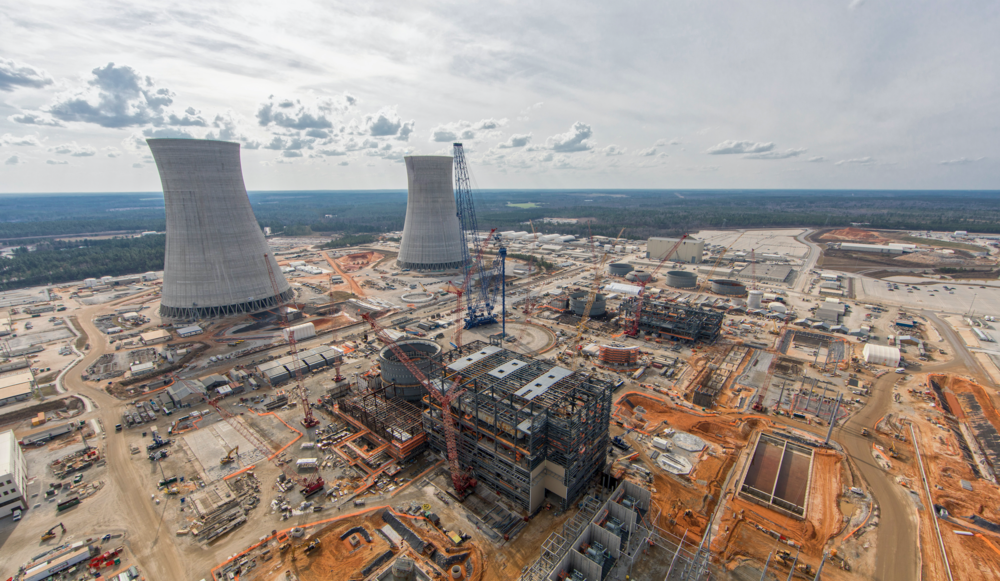Section Branding
Header Content
Construction At Plant Vogtle Continues, For Now
Primary Content
Work at Georgia Power’s Plant Vogtle will continue for at least the next 30 days.
That’s the word from the utility a day after Westinghouse, the contractor building two new reactors at the nuclear facility, declared bankruptcy.
“We have an incredibly dedicated workforce that takes their responsibilities at this project seriously and diligently,” said Georgia Power attorney Kevin Greene. He spoke before the Georgia Public Service Commission, the state’s utility regulator, Thursday.
“Our job is to make sure that they are not distracted or slowed down by the Westinghouse bankruptcy, and all indications are they have not been,” he said.
Greene told the commission Georgia Power plans to present a new contract to Westinghouse at the end of April. If Westinghouse rejects the contract, he said Georgia Power would return to the state for guidance on how to move ahead with Vogtle.
Greene said Westinghouse had, so far, been cooperating with Georgia Power on contract negotiations, but that provided little comfort to commission Chairman Stan Wise.
“Frankly, the fact that they’re being cooperative, to me that means nothing,” he said. “These people want our ratepayers to pay the learning curve for their technology.”
The Vogtle expansion uses Westinghouse’s AP1000 reactors, the construction of which the company blames for its financial woes. Currently there are no completed or operational AP1000 reactors anywhere in the world.
Georgia utility customers are already paying for the project. Last year, the commission voted unanimously to let Georgia Power charge ratepayers for the expansion, which was already years behind schedule and billions of dollars over budget.
Recent events have thrown the project’s timeline and cost estimates into doubt, which has clean energy and consumer rights advocates worried.
“No electric customer should be forced to continue to pay for construction of an electric generation facility that the utility cannot accurately predict the cost of and if and when the facility will be completed,” said Stephen Smith with the Southern Alliance for Clean Energy.
Still, Georgia Power has taken pains to assure ratepayers they’d not see additional charges on their utility bills.
“We will continue to take every action available to us to hold Westinghouse accountable for their financial responsibilities,” the company said in a statement Wednesday.


